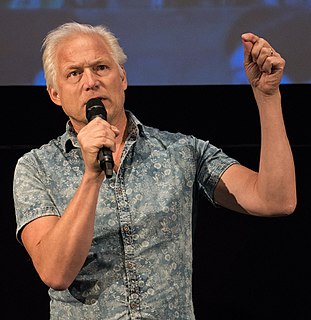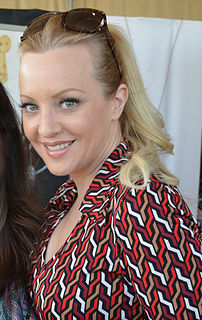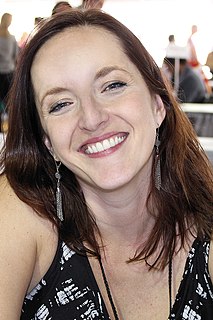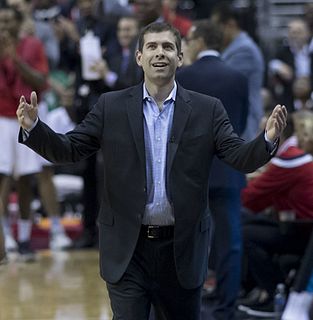A Quote by Mary Kay Zuravleff
I can be really silly when I'm not actually writing silliness, and I have to rein that in. Pynchon, in my opinion, sometimes tells elaborate shaggy dog stories just to work up to a pun or punch line. My challenge is to use humor and wordplay to reinforce the emotional core of the novel.
Related Quotes
Characters exist in a flat line until we challenge them - sometimes they challenge themselves, sometimes they're challenged by other people, by nature, by robots, or by fungal infections in and around one's nether-country. Stories need conflict across the physical, emotional, intellectual and spiritual spectra. Accidents, betrayals, cataclysm, desperation, excess - these are the letters in the alphabet of conflict.
Writing a short story is like painting a picture on the head of a pin. And just getting everything to fit is - sometimes seems impossible. Writing a novel, though, is - has its own challenges of scope. And I think of that as painting a mural, where the challenge is that if you are close enough to work on it, you're too close to see the whole thing.
I feel like in the reading I did when I was growing up, and also in the way that people talk and tell stories here in the South, they use a lot of figurative language. The stories that I heard when I was growing up, and the stories that I read, taught me to use the kind of language that I do. It's hard for me to work against that when I am writing.
Good writing, in my opinion, is writing that looks really easy, so easy that a person who has never written more than a grocery list might convince themself that they could also write a book. That being said, it's always a lot of work, as you know. And then there's this: you have no idea how many failed stories and novels I've attempted. I have files full of stories that didn't work for whatever reason.
Structure that really pays off is all based on emotion. I don't write down an elaborate plan. It's really done by feel. It's one area of my writing that I think I've got surer at as I've evolved. In my work you often get an abrupt shift in time, a jolt. But the emotional logic will take the reader on. I hope. I trust. After all, our memories do not work with any sequential logic.
There's an old adage of, 'This is what I do, it's not who I am.' There is a line that gets blurry at times because you sometimes become your work, or you sometimes put so much into your work that you can't separate from it. It swallows you up. It really happens during the season and it's a difficult line to manage.
The work I did on 'Killing Kennedy' was very meticulous and, in some ways, actually tedious. It was hard work because there is so much known about John F. Kennedy and Lee Harvey Oswald. To try to distill that into a clear narrative that's interesting and tells two great stories was a real challenge.
I think the most important thing is just to write. It sounds so simple, but sometimes it's not. You can get so distracted - -by having to work other jobs, or what other people have to say about your writing - -but the one thing that really matters is that you just keep going, especially when you're working on a novel. It's so easy to get discouraged and give up.





































